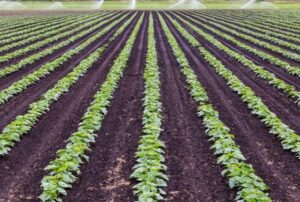How Organic Natural Farming Transforms Crop Cultivation
The global agricultural landscape is undergoing a paradigm shift as farmers and consumers increasingly recognize the value of organic natural farming. This sustainable approach to farming not only enhances soil health but also ensures high-quality produce without compromising environmental integrity. Organic natural farming stands as a transformative force in crop cultivation, combining traditional wisdom with modern sustainability practices.
What Is Organic Natural Farming?
Organic natural farming is a system of agriculture that emphasizes minimal external inputs, avoids synthetic fertilizers and pesticides, and focuses on the natural processes of soil fertility and pest control. Unlike conventional farming, which relies heavily on chemical interventions, organic natural farming nurtures the ecosystem by using compost, natural fertilizers, crop rotation, and intercropping techniques. The goal is to cultivate crops in harmony with nature, resulting in sustainable and eco-friendly production.

The Principles of Organic Natural Farming
Organic natural farming operates on several key principles:
- Soil Health as the Foundation: Healthy soil is the cornerstone of organic farming. Techniques such as composting, green manuring, and the use of bio-fertilizers enrich the soil, enhancing its fertility and microbial activity.
- Minimal External Inputs: Organic natural farming relies on natural resources available on or near the farm, reducing dependence on chemical inputs or industrial fertilizers.
- Biodiversity: Incorporating diverse crops and plants supports a balanced ecosystem, reducing the risk of pests and diseases while improving productivity.
- Natural Pest Management: By using natural predators, biopesticides, and companion planting, organic natural farming manages pests without harmful chemicals.
- Sustainability: Practices such as rainwater harvesting, mulching, and cover cropping ensure efficient resource utilization and long-term sustainability.
How Organic Natural Farming Transforms Crop Cultivation
Organic natural farming is a game-changer in crop cultivation. Here are several ways it is transforming the agricultural sector:
1. Improved Soil Fertility
Conventional farming practices, with their reliance on chemical fertilizers, often degrade soil health over time. Organic natural farming, on the other hand, focuses on replenishing and maintaining soil fertility. By using compost, manure, and organic mulches, farmers restore the soil’s natural nutrient cycle, ensuring a continuous supply of essential nutrients to crops. This leads to healthier plants and improved yields over the long term.
2. Reduced Dependence on Chemicals
One of the primary advantages of organic natural farming is the elimination of synthetic chemicals. Instead of chemical fertilizers, farmers use bio-fertilizers, vermicompost, and cow dung-based products to nourish crops. Similarly, natural pest repellents like neem oil or chili-garlic sprays replace harmful pesticides. This not only reduces environmental pollution but also ensures that crops are free from chemical residues.
3. Enhanced Biodiversity
Organic natural farming encourages biodiversity by integrating different crops, plants, and animals into the farming system. Intercropping—the practice of growing multiple crops together—is a common feature of organic farming. For example, legumes can be grown alongside cereals to naturally fix nitrogen in the soil. Biodiversity creates a balanced ecosystem, fostering beneficial insects and microorganisms that contribute to healthier crops.
4. Water Conservation
Conventional farming methods often waste water through inefficient irrigation techniques. Organic natural farming employs water-saving practices like mulching, which reduces evaporation, and rainwater harvesting, which captures and stores water for future use. Crops grown under organic practices also tend to have better water retention in the soil, reducing the overall water demand.
5. Resilience to Climate Change
As climate change brings unpredictable weather patterns, organic natural farming offers greater resilience. Practices such as crop rotation and polyculture help diversify risks, ensuring that farmers do not rely on a single crop. Organic soils also have higher organic matter content, which improves their ability to retain moisture and withstand droughts.
6. Higher Nutritional Value
Research shows that organically grown crops often contain higher levels of essential nutrients, antioxidants, and vitamins compared to conventionally grown produce. This is attributed to the natural way crops are cultivated, without synthetic additives, ensuring their full nutritional potential.
7. Economic Benefits for Farmers
While the transition to organic natural farming may require initial investments and effort, it offers significant long-term economic benefits. Reduced dependency on costly chemical fertilizers and pesticides lowers input costs. Additionally, organic produce often fetches a premium price in the market due to increasing consumer demand for healthy and eco-friendly products.
8. Reduction in Environmental Impact
Conventional farming practices contribute significantly to environmental degradation, including soil erosion, water pollution, and greenhouse gas emissions. Organic natural farming mitigates these impacts by fostering sustainable practices that protect the land and surrounding ecosystems. For instance, natural pest control methods reduce the risk of chemical contamination in water bodies.
9. Restoration of Traditional Farming Wisdom
Organic natural farming revives age-old agricultural practices that respect nature. Many techniques, such as crop rotation, use of natural manures, and traditional pest repellents, have been employed for centuries by farmers worldwide. By blending this traditional knowledge with modern organic farming techniques, farmers can achieve sustainable and productive outcomes.
Challenges in Organic Natural Farming
Despite its numerous benefits, organic natural farming faces certain challenges:
- Transition Period: Switching from conventional to organic farming involves a transition period during which soil and crop productivity may initially decline.
- Labor-Intensive: Organic farming often requires more manual labor for activities like weeding, composting, and pest control.
- Limited Awareness: Many farmers lack knowledge about organic farming techniques and benefits, which hinders its widespread adoption.
- Market Access: While demand for organic produce is rising, small-scale farmers may face challenges in accessing premium markets or obtaining organic certifications.
The Way Forward
To fully realize the potential of organic natural farming, stakeholders—from governments to consumers—must support this transformation. Here’s how:
- Government Support: Policies that provide subsidies for organic inputs, training programs for farmers, and financial incentives for certification can accelerate adoption.
- Consumer Awareness: Educating consumers about the benefits of organic produce can increase demand and create a favorable market for organic farmers.
- Research and Development: Investing in research to improve organic farming techniques and develop region-specific solutions can make organic farming more accessible and efficient.
- Collaborative Networks: Building farmer cooperatives and networks can help small-scale farmers share resources, access markets, and achieve economies of scale.
Conclusion
Organic natural farming is more than a farming technique; it is a movement toward a healthier, more sustainable future for agriculture. By restoring soil health, conserving natural resources, and reducing environmental impacts, it transforms crop cultivation into a process that aligns with the rhythms of nature. While challenges remain, the long-term benefits for farmers, consumers, and the planet make organic natural farming a cornerstone of sustainable agriculture. As the world seeks solutions to the pressing challenges of food security and environmental sustainability, organic natural farming offers a proven, practical, and promising path forward.














Post Comment